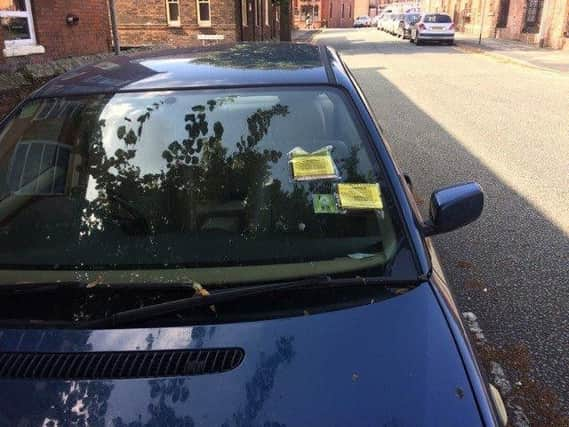Nine Tips for Appealing Private Parking Tickets


Nearly seven million parking tickets were issued by private companies in the past year, so top tips for appealing have been revealed.
Motoring experts from LeaseVan.co.uk have given Brits nine pieces of advice to help potentially wronged UK drivers appeal unfair private parking tickets, after a million more were issued than in the previous twelve months.
1. Don’t automatically pay then appeal
Advertisement
Hide AdAdvertisement
Hide AdIt’s much more difficult to try to recoup money you’ve already handed over, so contest an unfair charge before making any payment.
2. Remember private parking tickets aren’t fines
Only councils have the official authority to issue parking fines – a ticket issued by a private company is simply an invoice for what, in their opinion, is a breach of contract. So if you’re confident the ticket was unfair or not legitimate, you could simply write to the company and make it clear why you won’t be paying, rather than engaging with their usual complaints system – especially if the company isn’t a member of a trade body.
3. Contact the landowner directly
If a parking firm have been employed by a shop, hospital, leisure facility, stadium or attraction, for example, then contact the place you parked up directly. They may overrule and cancel your ticket if you’re a loyal customer, have a valid excuse or if the issue could damage their reputation.
4. Bear in mind discounts
If tickets are payed within a fortnight, a rate reduced by a minimum of 40 per cent must be offered. Appeals don’t extend this 14 day window for a lower charge though, so only peruse your case if you’re sufficiently confident or can afford the full amount should you be unsuccessful.
5. Gather and keep evidence
Advertisement
Hide AdAdvertisement
Hide AdTake photographs of your vehicle, the car park, bays, signage, entrances, conditions, circumstances – anything that could prove your case. Keep copies of all correspondence, receipts and any witness statements too.
6. Conduct relevant research
Rather than simply writing an angry letter or quickly filling out forms, it could help your cause to conduct some legal research. Including certain phrases and making a clear, well supported argument with precedent alongside your evidence could make the difference between success and failure.
7. Keep an eye out for ticketing technicalities
If the parking ticket issues has made a clear error, breached their own or industry rules, or broken the law themselves, at any stage of the process, then this could help your cause or even invalidate your ticket.
8. Be prepared for court
In extreme cases, a private parking company could take you to court to claim the money they believe they’re owed. But if you’re convinced you’re in the right and willing to spend the time and effort of fighting the company, you don’t have to back down if legal recourse is threatened.
9. Beware threatening or unaccredited firms
Advertisement
Hide AdAdvertisement
Hide AdWritten correspondence demanding payment, from the car park operator or debt collection agencies, are complaints regarding a billing dispute. They can’t send bailiffs to your home or damage your credit score, unless they take you to court, win, and you still refuse to pay.
We’d never advise drivers to ignore letters in case it gets them in to bigger trouble, but some independent parking firms may not have your details unless you provide them, as unregistered companies have no right to request DVLA data.
Ultimately it’s up to individual British drivers to assess the merits of appealing or accepting private parking tickets on a case by case basis. LeaseVan.co.uk accepts no responsibility for the consequences of following any of their nine top tips.